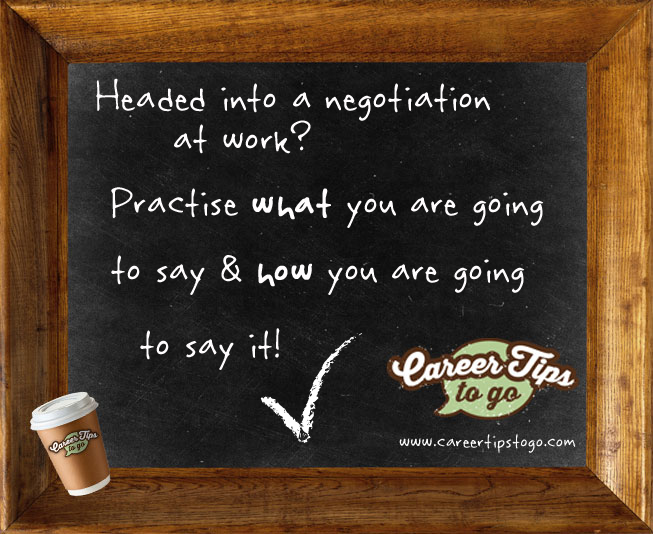 by Alice Young
by Alice Young
If you’re looking for a new job, your first job, or a change in career, chances are you will be “subject to” a selection process.
I use the term “subject to” deliberately, as when you’re experiencing it, more often than not it feels like it’s being “done to you”.
And yes, there is a War for Talent going on, and yes that should mean that every company is focused on hiring great people (just like you), and should have thought long and hard about their selection process and whether it is fit for purpose. But unfortunately so many companies get this WRONG.
So what might you face if you’re looking for a job, and what can you do to get through it?
The Agency Recruitment Interview
Many companies use external recruiters rather than doing their recruitment themselves. For you as an applicant this can be an issue as many recruiters are sales-people rather than “talent attraction specialists”, and so it can be difficult to even get to an interview. And if you do get one, you may be surprised by the lack of knowledge the recruiter has of a job that you’ve either been doing for years and know inside-out, or have done all the research on and been working towards in your career (and know inside-out).
Tip for surviving: own the interview.
Take the recruiter through why you’re appropriate for the role. Ask at the end whether there’s any extra information that they need. Ask how you rate against the other applicants they’ve seen and whether there’s any reason you wouldn’t be put forward to their client. Follow up two days later. If you want the job, also use your networks to ensure that the hiring manager knows that you’ve applied, and see if you can get recommended to them directly. Don’t sideline the recruiter, but use your networks in parallel to the recruiter process.
Fortune favors the brave so don’t be shy!
The Behavioral Interview
The acknowledged favorite of the in-house recruitment team, is the “behavioral interview”. This is based around questions formulated so that you the interviewee provide examples of what you have done in your career to-date. The premise is that the past dictates the future and questions are centered around the SBI model – situation, behavior, impact.
Tip for surviving: this is a formula, so practice it.
It’s actually quite helpful for your interview preparation (even if the interview isn’t behavioral) to think along the SBI lines as you will find you have to remember what the outcome of your inputs’ was (which it’s easy to forget to relay when you’re nervous and in the throes of an interview). For you it will feel a formulaic experience, and somewhat stifled, but go with it.
The Circles of Hell
Yes this analogy is relevant, because you need the patience of a saint and the resilience of a marathon runner to survive this one. This is the process where you are interviewed no less than 3 times and maybe up to 7; followed by some sort of test; followed by reference checks, oh and then they tell you they’ll pay $20k less than your last role, right at the end!
Tip for surviving: decide if you want to.
These companies claim they’re being thorough, but if they can’t make a hiring decision in less than X meetings, how do they get any business done? Life’s too short for this sort of “rigor”, unless of course you’re rigorous too 🙂
The Fireside Chat
This one often feels easier than the others, because it’s just a chat right? Like we’re buddies, aren’t we? We’ll meet informally and have a coffee, and you can tell me a bit about you and we’ll talk through the job etc
Tip for surviving: don’t believe this isn’t an assessment, it is, it’s just a sneaky, unstructured, and off-piste, assessment.
And it’s off-putting, because it feels a bit rude to go into “interview mode” doesn’t it? So reframe the situation for yourself by considering what it is that this manager needs this role to do. And talk to that. Demonstrate how you can make life easy for them. Make their pain disappear and the job will be yours.
The Panel Interview
Commonly used in organizations that want to demonstrate that they’re unbiased i.e. government, panel interviews can be intimidating. Sitting across a table being eyeballed by three or four strangers, it just feels pretty scary doesn’t it?
Tip for surviving: When a question is asked, smile and look at each interviewer before responding to and maintaining eye contact with the person that asked the question. When you are finished, smile again and look at each interviewer again. The point here is to include everyone with your body language, even though you have one point of focus in answering the question. Caution – don’t go overboard with looking around, do it in a measured way (or else you might look a bit unbalanced!).
The Storytelling Interview
For me this is one of the trickiest interviews – usually this interviewer has been with the company for a while and has had little interview training. Consequently, they use up 60 – 80% of the interview telling you anecdotes, stories, information (if you’re lucky).
Tip for surviving: concentrate on this interviewer’s drivers which are usually their passion for the company and the role. Politely interrupt just as they’ve finished a story with: “That really resonates, when I was at ……”. Tell a story of your own that shows you at your best and how you can contribute in this role. Do this often and don’t feel guilty about it. Remember, this interview is for you to relay information about you and your experience.
The Internal Interview
This one is tough because you know everyone. And they know you. So there’s no room for those little white lies about how brilliant you are. And your mind starts playing games that they know all your inadequacies, your “development areas”.
Tip for surviving: approach it like it is an external interview and give examples, because unless they’ve been doing your job, they don’t know you. And remember you have the advantage over external applicants because you know how the systems work, how to navigate the internal politics, are already passionate about the company so why wouldn’t you get the job?
Believe in yourself!
The Assessment Day
Usually used by companies who are hiring multiple roles, these test your substantive skill-set plus your resilience, intelligence, and social skills all over the course of a half or full day.
Tip for surviving: concentrate, and be yourself.
Yes it can be intimidating being in a room of 100 people knowing 10 are going to get “the job”, but focus on what it is you’re being asked to do and deliver to that. And don’t forget, that your “social” skills will be being assessed at all times, so engage with those around you (unless that really isn’t you, in which case this job probably isn’t either). Even if you don’t get an offer, you’ll learn something from the process.
The redundant TEST as final stage
This generally happens more the further up the career ladder you go. Interviewing for a CEO job and they want to test your excel skills – really, really?
Tip for surviving: take a breath and go with it. Get the job and change the tests!
The free work trial
This is commonly used in America and is a bit cheeky as they get a day’s labor for free; you have to demonstrate how you operate.
Tip for surviving: approach it as a learning experience – you don’t need to know everything, but you do have to show that you know enough, and how you’d go about working through the stuff that you don’t know. As an experience it might also give you enough information to realize you don’t want to work there! Try before you buy.
The really, really disorganized process
Who hasn’t been through one of these? You’re all excited about the job, you get the interview, you ace it, the company loves you, they want to move you to the next stage in the process and then you get THE CALL. The call that says: a) the hiring manager’s gone on holiday for a month, b) the budget’s been cut but they’ll be hiring again soon so they hope you’ll still be available, c) the new ……… has decided that they need ……… (insert random skill-set that has nothing to do with the job), d) they know they told you that this was the end of the process, but they’ve just decided that they need you to meet with another 2 people/ do a test/ walk to the moon (delete as appropriate).
Tip for surviving: disappointing as it may feel, cut and run.
Their lack of organization is their loss as you can’t hang around, there’s a war for talent going on out there and you are a highly sought after commodity. Next.
Of course this doesn’t cover every interview type out there, but the above are standard selection processes that you are likely to experience at different stages in your career.
So the final “killer tip” for maintaining your sanity as you go through this process, is not to forget that this is a two-way street and that you are selecting the company just as much as they are selecting you. I’d encourage you to only put your fantastic skills and personality to use in a company that feels like home, that shares your values and where you feel you can achieve a balance between what you give and what you get.
And remember, sometimes it is good luck not to get “the job” (even if it doesn’t feel like it at the time!).
Happy searching!
Like more career tips?
[mc4wp_form id=”1429″]



